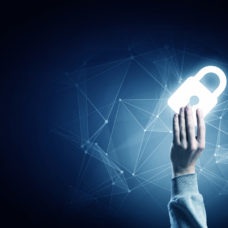Beginning on Thursday, December 1st, the power granted to U.S. law enforcement agencies to access the computers and phones of its citizens will be expanded. The new powers allow authorities to more easily gain a warrant to remotely access the computers of those people suspected of using technological means to hide their location. This expansion is being resisted by members of the U.S. Congress, but the deadline may pass before legislation can reverse the change.
An Expansion to Procedure
Those in the U.S. who use privacy protection tools such as virtual private networks (VPNs) or the Tor browser will soon find themselves subject to federal surveillance. If one user uses a VPN to conduct illegal activities and another user accesses the same VPN for legal activities, it is not easy to tell which user engaged in which activity. This creates a VPN user could be held responsible for a different user’s crimes. An expansion to federal criminal procedures would allow the FBI, CIA, and other authorities to search networks whose users may be suspected in crimes where a suspect has web anonymity, such as via VPN.
Presently, the federal criminal procedure requires the FBI to get a warrant from a federal judge within the federal judicial district of whatever system they wish to access. With the new amendment that takes effect at midnight on December 1, 2016, authorities will be able to acquire a search warrant from any judge located anywhere in the country.
The new rule change specifically targets the use of encryption and disabled location tracking. In short, it targets web anonymity. An additional clause would allow the granting of mass warrants to search those who have been victims of botnets or malware.
The amendment comes from the Judicial Conference, which has the authority to change the rules governing criminal proceedings, but there are voices urging caution that may bring the issue to a debate. Opposing forces wish to safeguard web anonymity.
A bipartisan group from the U.S. Congress is pushing legislation to either block or delay the changes until July 1, 2017.
“Currently, a certain piece of legislation (named the “Stop Mass Hacking Act“) is the only thing standing between this amendment and ratification.”
The Clock is Ticking
The bills being proposed in congress may still be passed after the rule change takes effect, but there is pressure on legislators to act quickly. If the amendment isn’t postponed, then federal authorities will have time to make use of the changes, something that makes many citizens nervous with regards to their web anonymity.
But the decision ultimately lies in the hands of the U.S. Senate and House of Representatives. Currently, a certain piece of legislation (named the “Stop Mass Hacking Act“) is the only thing standing between this amendment and ratification. The new amendment’s opposition will need the support of more senators than it currently has in order to be passed.
The Future of Web Anonymity
Whether the amendment is blocked or merely delayed remains to be seen, but the outcome will likely have a profound effect on the current debate surrounding Internet privacy.
In response to this, private organizations such as Fight For The Future are urging citizens to contact their senators to urge them to block the amendment.



















If you read the actual rule as linked to in the article, you will find that the rule does not say that anonymity itself is now reasonable suspicion. (The headline of this article is misleading.) The rule says if criminal activities are spread over multiple regions, and the physical location of a relevant storage medium can’t be determined due to anonymization, then a judge in one of the regions identified can issue the warrant. Maybe that makes it easier to get a warrant, but it is not the case that the rule change allows anonymization itself to be a basis for getting the warrant.
Yeah, well my Senator is Feinstein, so that would be a complete waste of time.